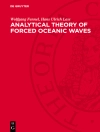This book documents the First World Landslide Forum, which was jointly organized by the International Consortium on Landslides (ICL), eight UN organizations (UNESCO, WMO, FAO, UN/ISDR, UNU, UNEP, World Bank, UNDP) and four NGOs (International Council for Science, World Federation of Engineering Organizations, Kyoto Univ. and Japan Landslide Society) in Tokyo in 2008.
The material consists of four parts: The Open Forum ‘Progress of IPL Activities; Four Thematic Lectures in the Plenary Symposium ‘Global Landslide Risk Reduction’; Six Keynote Lectures in the Plenary session; and the aims and overviews of eighteen parallel sessions (dealing with various aspects necessary for landslide disaster risk reduction such as: observations from space; climate change and slope instability; landslides threatening heritage sites; the economic and social impact of landslides; monitoring, prediction and early warning; and risk-management strategies in urban area, etc.)
Thus it enables the reader to benefit from a wide range of research intended to reduce risk due to landslide disasters as presented in the first global multi-disciplinary meeting.
Table des matières
Progress of IPL Activities.- Progress of the International Programme on Landslides (IPL) – Objectives of the IPL and the World Landslide Forum.- Projects of International Programme on Landslides.- Keynote Lectures.- Landslide Risk Assessment and Mitigation Strategy.- Understanding to Predict.- Mechanics-Based Approach Toward the Mitigation of Debris Flow Disasters.- Submarine Mass Movements and Their Consequences: An Overview.- Satellite Remote Sensing Applications for Landslide Detection and Monitoring.- Huge Landslides Caused by Massive Earthquakes and Long-Lasting Geotechnical Risks.- The Increasing Wildfire and Post-Fire Debris-Flow Threat in Western USA, and Implications for Consequences of Climate Change.- Recovery of the Buddha’s Niches and Cliff in Bamiyan (Central Afghanistan) after the Taliban Destruction of 2001.- Achievements of IPL Projects.- Assessment of Global High-Risk Landslide Disaster Hotspots.- International Summer School on Rockslides and Related Phenomena in the Kokomeren River Valley, Tien Shan, Kyrgyzstan.- Landslide Investigation and Capacity Building in the Machu Picchu – Aguas Calientes Area (IPL C101-1).- Monitoring, Geomorphological Evolution and Slope Stability of Inca Citadel of Machu Picchu: Results from Italian INTERFRASI project.- Dilatometric and Extensometric Monitoring of Rock Blocks Displacements Within Machu Picchu Archaeological Site, Peru.- Geophysical Surveys at Machu Picchu, Peru: Results for Landslide Hazard Investigations.- Integration of VHR Satellite Images with Field Data for the Analysis of Debris Sheet Instability in the Machu Picchu Area.- Parallel Sessions.- A Look from Space.- Mapping: Inventories, Susceptibility, Hazard and Risk.- Monitoring, Prediction and Early Warning.- Catastrophic Slides and Avalanches.-Cultural Heritage and Landslides: Research for Risk Prevention and Conservation.- Landslides and Multi-Hazards.- Rainfall, Debris Flows and Wildfires.- Case Studies and National Experiences.- Education, Capacity Building and Public Awareness for Disaster Reduction.- International Cooperation Initiatives.- Policy and Institutional Framework for Landslide Mitigation and Risk Reduction.- Climate Change and Slope Instability.- Economic and Social Impacts of Landslides.- Environmental Impact of Landslides.- Engineering Measures for Landslide Disaster Mitigation.- Watershed and Forest Management for Landslide Risk Reduction.












